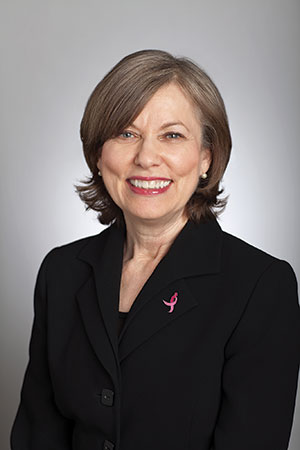I saw on social media that an old friend I haven’t spoken to in years has cancer. Should I reach out?

Susan Brown, Senior Director of Education and Patient Support at Susan G. Komen in Dallas. Photo courtesy of Susan Brown
SUSAN BROWN: If your old friend has posted news of the diagnosis to Facebook or some other social media outlet, it’s safe to assume she’s comfortable discussing it in this venue. If you learned of it some other way—via a mutual friend, for example—you should proceed much more cautiously.
Being diagnosed with cancer can cause people to feel detached from their peers. Undergoing treatment can leave people isolated for more practical reasons—especially if it involves travel. Facebook and other forms of social media provide an opportunity to reduce those feelings of isolation. Some of the ways we used to show support to friends in tough times, like sending a card or dropping by, can now be done using technology.
Social media has the potential to serve as a critical source of emotional and psychosocial support. It doesn’t take much effort to “like” a post sharing good news about your friend’s treatment or prognosis, but it could really make a difference.
Keep in mind that the same rules of cancer etiquette apply on social media as elsewhere in life. Avoid comments such as “things happen for a reason” or “I know just what you are going through.” Encouraging or empathetic words are generally helpful, but I recommend caution in offering unsolicited advice.
Scrolling through comments on social media is comforting for many people. We often hear from patients about how important those messages are to them while sitting in a chemotherapy infusion lab or while awake in the middle of the night. Even if you don’t get an immediate response, or perhaps any direct response at all, that doesn’t mean your support isn’t helpful and appreciated.
SOCIAL MEDIA AND CANCER // CancerConnect is a social network specifically for people with cancer. // Cancer.Net provides a list of common hashtags to help Twitter users share their experiences and advice with one another. // The University of Texas MD Anderson Cancer Center highlights Twitter chats and online groups for patients and caregivers.
Cancer Today magazine is free to cancer patients, survivors and caregivers who live in the U.S. Subscribe here to receive four issues per year.




